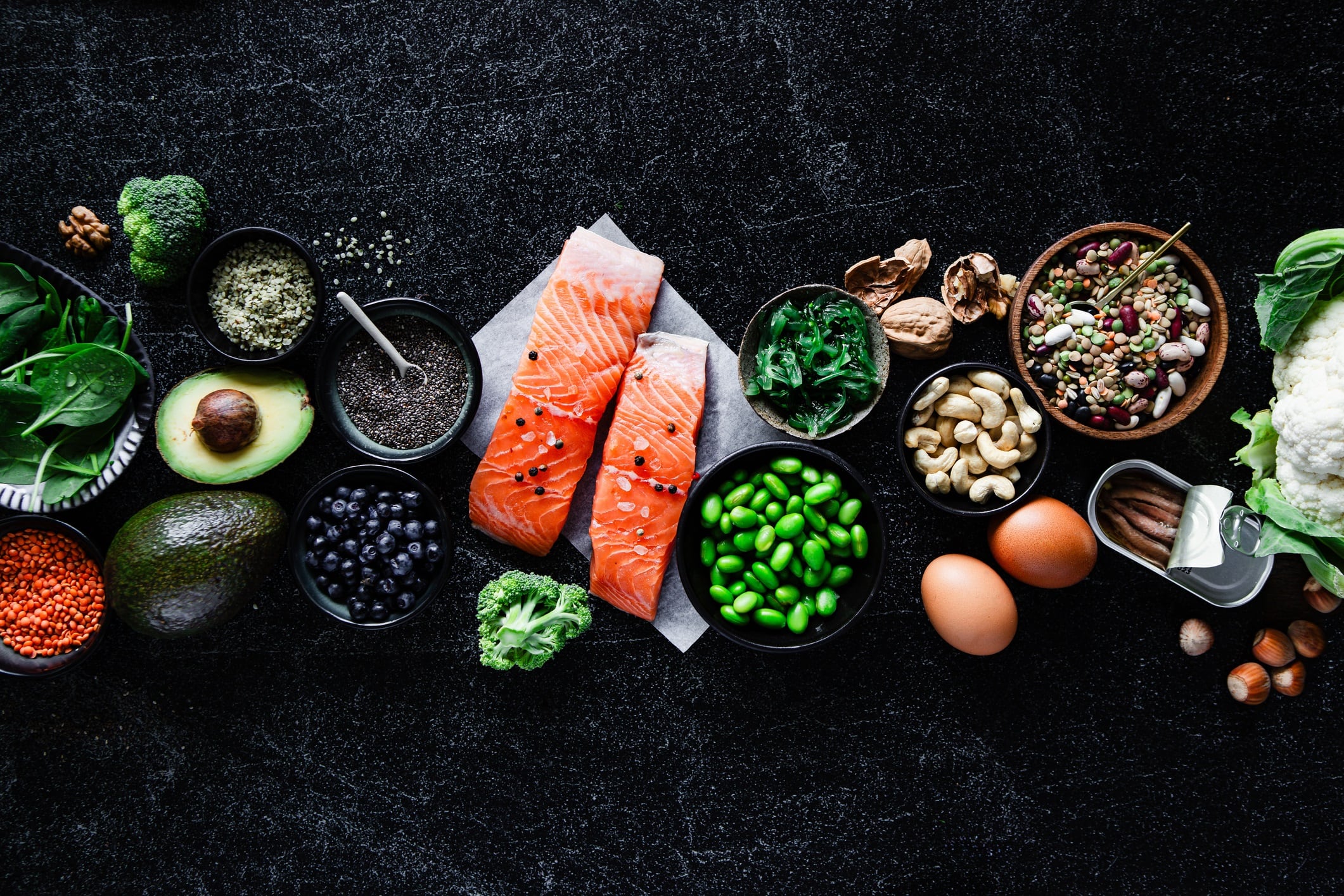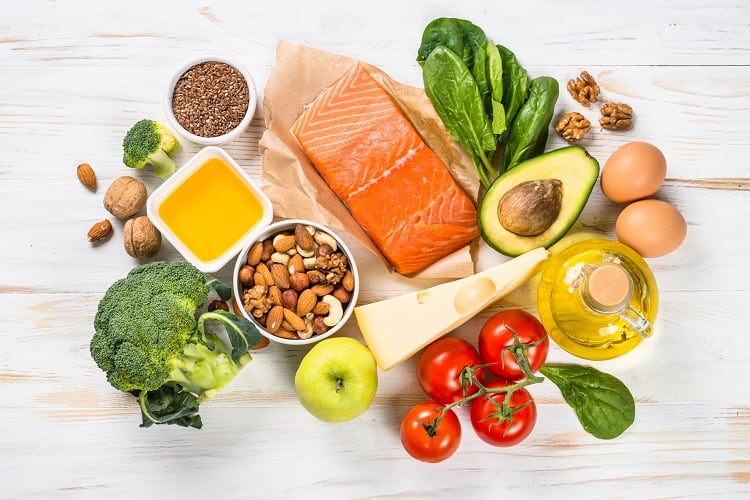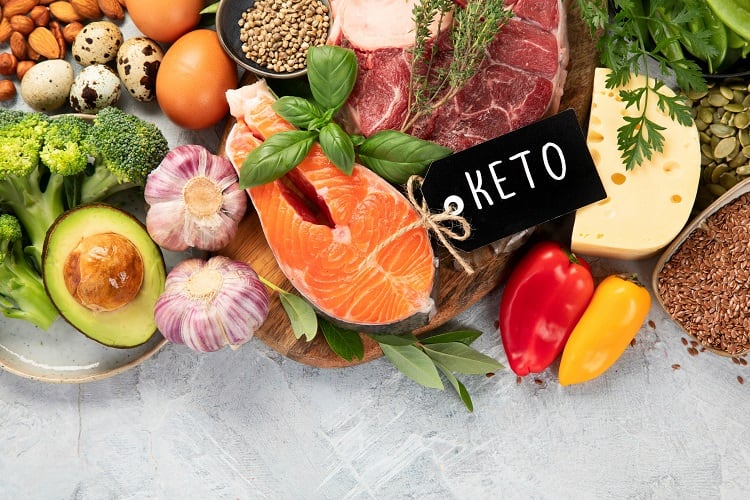Why is the keto diet declining? A summary
- Global interest in keto dropped 18.5% year-on-year by mid-2025
- Restaurant keto menu items fell 12.3% year-on-year in the same period
- Consumers are fatigued by keto’s restrictive and complex requirements
- Gut health concerns are driving a shift to balanced, whole-food diets
- Brands are retiring keto products and rebranding with broader health claims
The ketogenic (keto) diet has dominated the weight-loss market since its rise to prominence in the mid-1990s.
It’s boosted sales of high-fat meats, fish, dairy and eggs, and reached a global market value of $12.45bn (€10.65bn - market insights company Grand View Research).
What’s more, it’s attracted some high-profile fans, including Halle Berry, Kourtney and Kim Kardashian, and Gwyneth Paltrow.
But fortunes of the famed diet choice are changing, with figures showing interest is in decline. In fact, it’s been losing supporters for some time.
“Interest in keto began to show signs of decline in early 2024,” says Alon Chen, CEO of food analytics group Tastewise.
According to research from Tastewise, social mentions of keto dropped 18.5% year-on-year by mid-2025, the share of restaurant menus featuring keto items decreased by 12.3% year-on-year, and home cooking recipes tagged as keto also showed a drop in volume.
“While there are still pockets of growth - like keto-friendly ranch dressing and cauliflower-based dishes - the broader trend indicates a tapering of mass interest,” says Chen.
What is the ketogenic diet?
The ketogenic diet, better known as keto, is a low-carbohydrate, high-fat and moderate protein diet, which shifts the body’s metabolism from using glucose as the main fuel source to burning fat and producing ketones for energy.
What are ketones?
Ketones are a type of chemical that the liver produces when it breaks down fats. The body uses ketones for energy during fasting, long periods of exercise or when it does not have access to carbohydrates.
Why is keto in decline?
There are a few reasons for keto’s fall from favour, but we’ll jump to the most obvious one first - it’s just too restrictive.
Restrictive diet fatigue
Consumers have grown tired of restrictive such as keto. Because yes, it allows for plenty of indulgent foods such as red meat and dark chocolate. But it also prohibits entire food groups, including carbohydrates such as grains, fruits, legumes, and starchy vegetables. It also excludes sugary treats.
Keto’s complexity and rigid requirements - like tracking macros - has only added to the diet’s decline.
“Keto reached peak cultural awareness in 2021–2022," says Tastewise’s Chen. “By 2024, many consumers began moving on from restrictive diets.”
Shift to holistic health
The rise of the health and wellness trend, including the growing focus on the gut microbiome, means consumers are searching for balance and wholefood eating, rather than just elimination.
“Functional health claims like ‘gut health’ and ‘immune support’ have grown faster than weight-loss-centric claims,” says Chen.
Moreover, growing concerns that the lack of diversity in the keto diet could actually harm gut health is proving another blow to its reputation.
Increased awareness of side effects
So-called keto flu - a result of long-term nutrient deficiencies - is driving people away from the eating style, as nutritionists warn of potential long-term health impacts.
Social limitations
Consumers are being put-off by the difficulties faced during social dining situations. Whether eating at a friend’s house or in a restaurant, the restrictive nature of the diet means suitable options are often unavailable.
“Limitations are common frustrations that drive abandonment,” confirms Chen.
Keto doesn’t always work
According to Tastewise, many consumers expected to achieve rapid weight loss under the keto diet. This wasn’t always the case. In fact, many adopters found their weight plateaued, and the weight was subsequently regained when the diet was ultimately abandoned.

Has GLP-1 taken keto’s crown?
Another factor to be considered in the decline of keto is the stratospheric rise of GLP-1 drugs.
“GLP-1 drugs have significantly disrupted the keto narrative,” says Chen.
Social buzz around GLP-1 drugs grew by 182% year-on-year, outpacing most diet-related keywords in food content by late 2024.
“Many consumers now view these medications as a simpler, less restrictive path to weight loss,” says Chen.
Though interestingly, the health concerns that surround keto are also increasingly surrounding GLP-1, including its impact on gut health.
What are GLP-1 drugs and how do they work?
GLP-1, or glucagon-like peptide-1, is a form of medication, which was originally developed to treat type 2 diabetes. Its aim is to mimic the action of the hormone, GLP-1, which is naturally released into the stomach when food is consumed.
GLP-1 drugs work by activating the GLP-1 receptor in the body. They slow gastric emptying, inhibit the release of glucagon, and stimulate insulin production. This slowed gastric emptying helps the patient to feel fuller for longer, therefore reducing food intake and aiding weight loss.

How is food and beverage reacting to keto’s decline?
Brands have quickly moved their focus from keto to GLP-1s.
Manufacturers are already reformulating products to align with GLP-1 usage - focusing on satiety, portion control, and low-glycaemic ingredients, rather than high-fat keto formulations.
Added to this, companies are retiring slow moving keto-focussed products, or rebranding them with broader health claims to reach wider audiences.
“There’s a move away from marketing food as ‘keto-friendly’ and towards general health-focused attributes such as high protein, low sugar, gut friendly, or clean label,” says Chen.

What’s next for weight loss and wellness?
As the keto diet fades from the spotlight, the food and beverage industry is recalibrating to meet evolving consumer demands.
The shift away from restriction and towards holistic, functional health is reshaping product innovation, marketing strategies, and dietary narratives.
By contrast, the growth in popularity of GLP-1 drugs is adding an entirely different health and wellness space for food and beverage to explore.
Whether through gut-friendly formulations or clean-label claims, brands that adapt quickly will be best positioned to thrive in this new era of wellness.





